Yawkey Juvenile Law Lawyer, West Virginia
Not enough matches for Yawkey Juvenile Law lawyer.
Below are all Yawkey Criminal lawyers.
Ronald N. Walters
✓ VERIFIEDAccident & Injury, Criminal, Bankruptcy & Debt, Family Law, Trusts
Ron has, over the last decade, assisted clients by planning and designing settlements to address future needs and ensure any government benefits are p... (more)
Claude S. Smith, III
✓ VERIFIEDAccident & Injury, Personal Injury, Divorce & Family Law, Criminal
Whether you have suffered an accident while on the job or suffered an injury during a car accident or semi truck accident, The Law Offices of Claude S... (more)
Jon D. Hoover
✓ VERIFIEDAccident & Injury, Divorce & Family Law, Employment, DUI-DWI
Jon graduated from Widener University School of Law in 1999. Jon returned to West Virginia and worked briefly with the Kanawha County Prosecuting Atto... (more)
Traci L. Wiley
Criminal, Colleges & Universities, Commercial Insurance, Construction Contracts
Status: In Good Standing
L. Scott Briscoe
Guardianships & Conservatorships, Juvenile Law, Criminal, Adoption
Status: In Good Standing Licensed: 27 Years
Traci L. Wiley
Criminal, Colleges & Universities, Commercial Insurance, Construction Contracts
Status: In Good Standing




